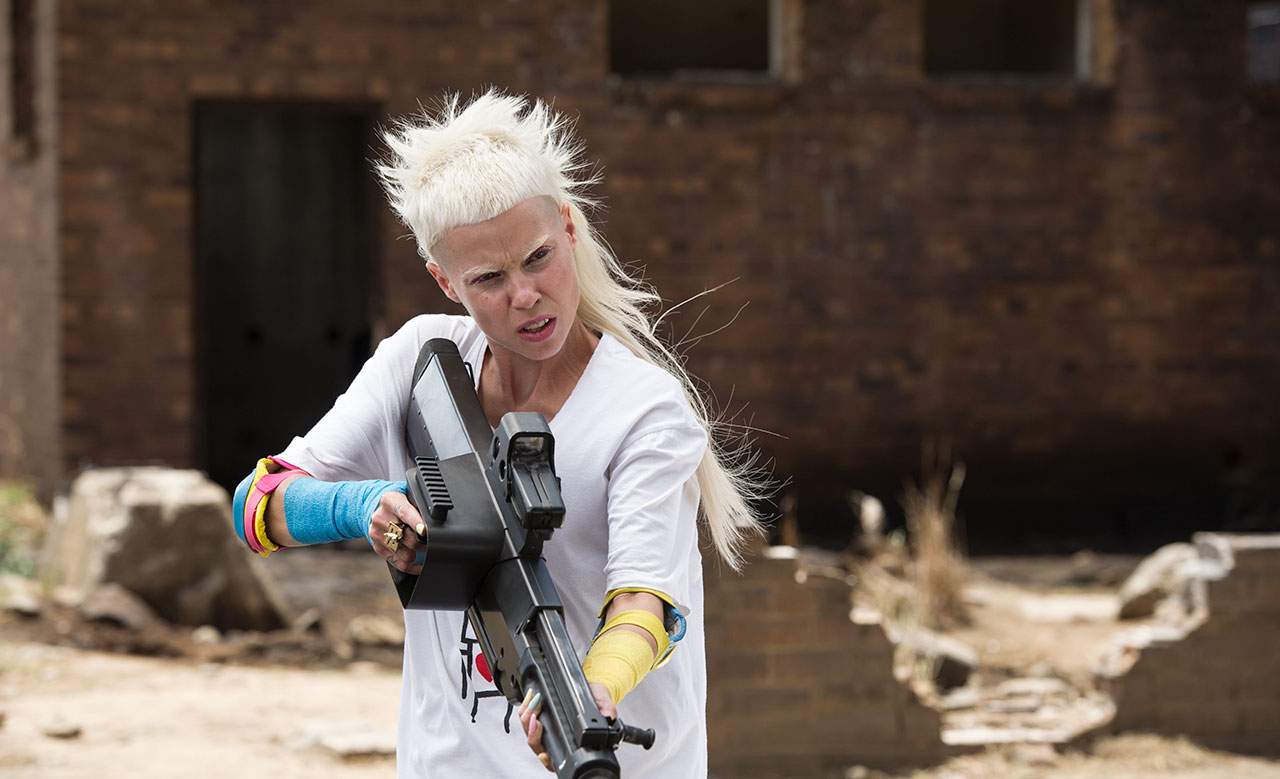Chappie
Swashbuckler Hugh Jackman and weirdos Die Antwoord star in Neill Blomkamp's ambitious new film about AI.
In partnership with
Overview
As filmgoers, it would seem that we have a unique fascination with anthropomorphised machines. From WALL-E to Blade Runner to Spike Jonze’s recent Her, movies are full of artificially intelligent creations who have captured the imagination of audiences, and in doing so blurred the line of what it truly means to be human.
The most recent robot to achieve sentience on screen is the title character in Chappie, the latest film from writer-director Neill Blomkamp. A member of Johannesburg’s robotic police force, Chappie (voiced and motion captured by Sharlto Copley) is earmarked for decommission after being damaged during a drug raid. Instead, his designer Deon Wilson (Dev Patel) decides to use him as a guinea pig for a radical new form of AI, one that more closely resembles human consciousness. But Deon’s success is soured after Chappie is stolen by a group of gangsters (South African rap group Die Antwoord playing fictionalised versions of themselves), who plan on using the impressionable robot to execute a heist.
Three films into his career, Blomkamp has proven himself as a storyteller with a lot on his mind. His hit debut District 9 used an outlandish sci-fi premise as an allegory for racial prejudice and discrimination, while his big-budget follow-up Elysium touched on notions of immigration and class divide. In Chappie his ideas get even bigger, hitting everything from police militarisation to the nature of consciousness, loss of faith and even alternate modes of parenting.
If anything, Blomkamp maybe tackles too much, packing his movie with a litany of different concepts at the expense of covering any of them in depth. There’s an argument to be made for quality over quantity, yet it’s hard to fault the director for his ambition. Nor can you ignore the amount of food for thought the film provides — brains being an increasingly rare commodity in Hollywood blockbusters, after all.
And to its credit, Chappie succeeds as more than just a think piece. Possessing the innocence and excitability of a child, Chappie makes for a wonderful protagonist, with Copley’s mo-cap and vocal performance comparable to the work of Andy Serkis. As Chappie slowly matures, viewers will find themselves caught up in his emotional journey; particularly moving is the dynamic between Chappie and his surrogate mother Yolandi, who helps the robot attune his moral compass.
Chappie does unfortunately suffer from one major flaw, and it comes in the form of its villain. Sporting his natural accent in one of the most poorly written parts of his career, Hugh Jackman plays the brutish Vincent Moore, a former soldier who plans on sabotaging Deon’s police robots — including Chappie — so that the force might invest in his more heavily armoured, remotely piloted drones. Even if you can ignore his cringeworthy Australian slang and unintentionally hilarious Steve Irwin-style khakis, Moore’s motivations remain excruciatingly one-dimensional. His only purpose is to manufacture conflict, and he basically derails the movie whenever he appears on screen.
Luckily, Chappie is always there to get the story back on track. And perhaps it’s only fitting that, in a story about artificial humanity, the most emotionally intricate character isn’t a human at all.






